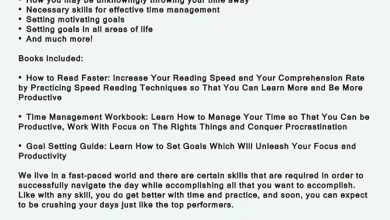What Is Argument In Critical Thinking?

In today’s world, we are bombarded with information from various sources such as news media, social media, and other platforms. It can be difficult to discern what is true and what is not.
This is where critical thinking comes in, which heart is the ability to engage in argumentation. But what is argument in critical thinking?
Argument in critical thinking is the process of analyzing and evaluating arguments in order to form a well-reasoned conclusion. This process involves using evidence, reasoning, and logic to assess the validity of claims and form an opinion on a particular issue.
In this blog, we will explore the meaning of arguments in critical thinking, their components, and how to analyze them effectively. So, stay tuned by reading the entire content.
What Is An Argument?
An argument refers to a set of statements or propositions that support a particular viewpoint or conclusion. It involves the use of reasoning and critical thinking skills to persuade others to accept a particular claim. Arguments can be either deductive or inductive, and they can be evaluated for their validity and soundness.
Effective arguments require a strong understanding of the topic, knowledge of logical fallacies, and the ability to analyze and evaluate different aspects of the argument. Teaching and practicing argumentation can improve critical thinking skills, decision-making abilities, and writing.
What Is Argument In Critical Thinking?
In critical thinking, an argument refers to a set of statements presented as evidence to support a claim or conclusion. It involves the use of reasoning and logical thinking to support a position or point of view.
Critical thinking skills are essential for analyzing and evaluating arguments to determine their validity and soundness. The analysis of arguments involves identifying the structure, terms, and assumptions of the argument, while the evaluation of arguments involves assessing their strengths and weaknesses, including any logical fallacies or errors in reasoning.
Effective arguments are those that are clear, well-structured, and supported by reliable evidence, and critical thinkers aim to use these skills to make informed decisions and achieve their goals.
Components Of An Argument In Critical Thinking
An argument is a set of claims or propositions that are supported by reasons or evidence. Here are some key components of arguments in critical thinking:
- Claims: The main point or assertion being made
- Reasons: The supporting statements or evidence that provide a basis for the claim
- Evidence: The facts, data, or examples used to support the reasons
Other Related Aspects Of Argumentation And Critical Thinking Include:
- Logical Fallacies: Errors in reasoning that can weaken an argument
- Deductive Arguments: Arguments that draw a conclusion from premises
- Inductive Arguments: Arguments that use specific examples to draw a general conclusion
- Analysis of Arguments: Examining an argument to understand its structure and effectiveness
- Goals: The objectives that an argument is trying
Types Of Arguments In Critical Thinking
Arguments play a crucial role in critical thinking as they provide the foundation for making logical and sound decisions. Below, we will discuss the different types of arguments that critical thinkers should be aware of.
Deductive Arguments
Deductive arguments are a type of argument where the conclusion necessarily follows from the premises. A valid deductive argument has set forth that is true and leads to a conclusion that is also true.
Inductive Arguments
Inductive arguments are a type of argument where the conclusion is supported by the premises. However, it does not necessarily follow from them. Inductive arguments rely on probability, and the strength of the argument depends on the strength of the premises.
Sound Arguments
A sound argument is a type of deductive argument that is both valid and has set forth that is true. A sound argument is considered a strong argument as the conclusion follows from the premises and the premises are true.
Evaluation of Arguments
Critical thinkers need to evaluate arguments to determine their strengths and weaknesses. An evaluation of arguments involves analyzing the premises and the conclusion to determine if they are logical and support the conclusion.
Importance of Arguments in Critical Thinking
In critical thinking, arguments are used to evaluate the validity and soundness of a claim or belief. Here are some reasons why arguments are essential in critical thinking:
Evaluating the Strength of Claims
Arguments are used to evaluate the strength of claims or beliefs. When presented with a claim, a critical thinker evaluates the argument put forward to support that claim. This evaluation involves identifying the premises and conclusions of the argument and examining the logical connection between them. This process helps the critical thinker determine whether the argument is sound or not.
Identifying Flaws in Reasoning
Arguments are also used to identify flaws in reasoning. By analyzing an argument, a critical thinker can identify any logical fallacies or inconsistencies in the argument. This helps to identify any errors in reasoning and allows the thinker to correct any mistakes in their own thinking.
Supporting or Refuting a Claim
Arguments can be used to support or refute a claim. A critical thinker can use arguments to provide evidence to support a claim or to refute a claim by demonstrating that the premises of the argument are false or that the conclusion does not logically follow from the premises.
Facilitating Constructive Dialogue
Arguments are used to facilitate constructive dialogue. When people engage in argumentation, they are forced to present evidence and reasons to support their claims. This process of argumentation encourages people to listen to and consider opposing viewpoints. Through constructive dialogue, people can come to a better understanding of the issue at hand and reach a more informed decision.
Developing Critical Thinking Skills
Arguments are essential in critical thinking because they help to develop critical thinking skills. By analyzing arguments, critical thinkers learn how to identify premises, evaluate evidence, identify flaws in reasoning, and construct sound arguments. These skills are essential for making informed decisions and for engaging in constructive dialogue.
Also Read: Why Is Critical Thinking Important For Professional Ethics
How to Develop Effective Arguments in Critical Thinking?
Developing effective arguments is a crucial skill in critical thinking. Here are some tips for developing effective arguments in critical thinking:
1. Start With A Clear Thesis Statement
Your thesis statement should clearly state your argument and the main points you will use to support it. It should be specific and focused and should avoid vague or ambiguous language. Your thesis statement will serve as the foundation for your entire argument, so it’s important to get it right.
2. Gather Evidence And Examples
To support your thesis statement, you will need to gather evidence and examples that illustrate your points. This might involve reading academic articles, conducting research, or analyzing case studies. Your evidence should be relevant, credible, and persuasive, and should be presented in a clear and logical way.
3. Consider Counterarguments
To strengthen your argument, you should also consider counterarguments. This means anticipating the objections that someone might raise to your argument and preparing responses to those objections. By doing this, you can show that you have thought carefully about your position and that you are willing to engage with opposing viewpoints.
4. Use Logical Reasoning
Logical reasoning is the foundation of critical thinking. This involves using evidence and examples to draw logical conclusions that support your thesis statement. Your arguments should be based on sound reasoning and avoid logical fallacies, such as ad hominem attacks or straw man arguments.
5. Organize Your Argument
To make your argument more effective, you should organize it in a clear and logical way. This might involve using headings and subheadings to organize your points or using transitional phrases to connect your ideas. By organizing your argument effectively, you can make it easier for your readers or listeners to follow your reasoning.
6. Use Language Effectively
The language you use can also affect the effectiveness of your argument. You should use clear, concise language that is appropriate for your audience, and avoid jargon or technical terms that might confuse your readers or listeners. You should also be aware of the emotional impact of your language, and use it strategically to persuade your audience.
Final Thoughts
You should get the answer to the question “What is argument in critical thinking?” through the discussion above. Basically, an argument in critical thinking is the process of gathering and evaluating evidence and then arriving at a logical conclusion based on that evidence.
However, it requires the consideration of multiple perspectives and requires the ability to communicate and defend one’s own position. Apart from that, it requires the ability to anticipate and address potential counterarguments.
Read More:
How To Sharpen Your Critical Thinking Skills?



